The March for Scientism
by Carl Olson
Filed under Science

Back in the early 1840s, John Henry Newman observed that physical philosophers—that is, scientists—"are ever inquiring whence things are, not why; referring them to nature, not to mind; and thus they tend to make a system a substitute for a God..." The "tending" has been, as they say, trending ever since. About a hundred years later, in 1948, Fulton Sheen remarked in his outstanding study Philosophy of Religion, that: Science cannot give us a philosophy, nor can it give us an ethics; it cannot... Read More
Is Religion Evil? Secularism’s Pride and Irrational Prejudice
by Carl Olson
Filed under Christianity and Violence

The common wisdom in many circles (most located in certain cities on the East and Left Coasts) is that religion, in general, is a bad thing, and that in the hands of "fundamentalists," the Ku Klux Klan, neo-Nazis, and ultra-super-radical-Islamic terrorists, it is inevitably evil. Eliminating religion, it is then suggested or even openly argued, is a sure way to rid the world of evil. The term "religion," it should be noted, almost always refers to Christianity (or a form of pseudo-Christianity)... Read More
The Dogmas and Failure of Rational Atheism
by Carl Olson
Filed under New Atheists
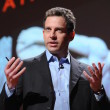
I was recently re-reading sections of what I think is one of the best and yet most under-appreciated Catholic books written in recent decades, Faith and Certitude by Father Thomas Dubay. Fr. Dubay's book is, as the title suggests, especially concerned with skepticism and unbelief, and is an excellent examination of the intellectual premises and varied attitudes held by atheists. In a chapter titled, "Clarifying Our Concepts," Fr. Dubay writes: "Everyone is dogmatic. The statement may startle, but... Read More
Galileo was Right—But So Were His Critics
by Carl Olson
Filed under Christianity and Science, Galileo, Interviews
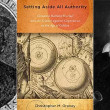
Ever since the seventeenth century, the celebrated “Galileo affair” has been one of the featured items on the list of dark moments in the history of Catholicism. That the Church mistreated the Italian astronomer—or at least misjudged his claims concerning the structure of the solar system—seems clear. Pope John Paul II, for example, apologized for the Church’s condemnation of Galileo in 1992. No one now disputes the fact that the earth revolves around the sun rather than the other way... Read More
Dark Ages and Secularist Rages: A Response to Professor A.C. Grayling
by Carl Olson
Filed under Culture, History
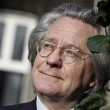
A few years ago, Professor A.C. Grayling, professor of philosophy at Birkbeck College, University of London, wrote a column titled "The persistence of the faithful" in The Guardian. Grayling's column was ostensibly concerned with the apparent decision of the British government passing the "Equality Act," which would make it law that adoption agencies, including those run by the Catholic Church, would have to allow homosexual couples to use their adoption services. But Grayling's column touched... Read More
Love and the Skeptic
by Carl Olson
Filed under Anthropology, Atheism

"The greatest of these," wrote the Apostle Paul, "is love" (1 Cor. 13:13). Many centuries later, in a culture quite foreign to the Apostle to the Gentiles, the singer John Lennon earnestly insisted, "All we need is love." Different men, different intents, different contexts. Even different types of "love." You hardly need to subscribe to People magazine or to frequent the cinema to know that love is the singularly insistent subject of movies, songs, novels, television dramas, sitcoms, and talk shows—the... Read More
Three False Christs: The Myth, the Mortal, and the Guru
by Carl Olson
Filed under Jesus
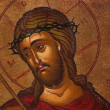
Albert Schweitzer, in the opening pages of his famous and influential 1906 book The Quest of the Historical Jesus, wrote, "And so each subsequent epoch in theology found its own ideas in Jesus, and could find no other way of bringing him to life. Not only epochs found themselves in him. Each individual recreated him in the image of his own personality." Examples abound: Many atheists insist that Jesus didn't even exist or that, if he did, he is either lost in the mists of time or misused by Christian... Read More
Why Believe?
by Carl Olson
Filed under Belief, Faith, New Atheists
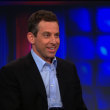
"Faith is always at a disadvantage; it is a perpetually defeated thing which survives all of its conquerors," wrote G. K. Chesterton. Faith is the Christian word. Avery Cardinal Dulles, S.J., in his masterful theology of faith, The Assurance of Things Hoped For, writes, "More than any other religion, Christianity deserves to be called a faith". He points out that in the New Testament the Greek words for "faith" and "belief" occur nearly 500 times, compared to less than 100 for "hope" and about 250... Read More
Myths, Lies, or Truth: Can We Really Trust the Gospels?
by Carl Olson
Filed under The Bible
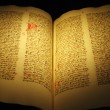
January 11, 49 B.C. is one of the most famous dates in the history of ancient Rome, even of the ancient world. On that date Julius Caesar crossed the Rubicon River, committing himself and his followers to civil war. Few, if any, historians doubt that the event happened. On the other hand, numerous skeptics claim that the Gospels of Matthew, Mark, Luke, and John are myth and have no basis in historical fact. Yet, as historian Paul Merkley pointed out two decades ago in his article, "The Gospels as... Read More
Augustine’s “Confessions” and the Harmony of Faith and Reason
by Carl Olson
Filed under Faith
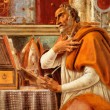
Pope Benedict XVI dramatically underscored the importance of St. Augustine of Hippo (354-430) recently. In a series of general audiences dedicated to the Church fathers, Benedict devoted one or two audiences to luminaries such as St. Justin Martyr, St. Basil, and St. Jerome, while dedicating five to Augustine. One of the greatest theologians and Doctors of the Church, Augustine’s influence on Pope Benedict is manifest. "When I read Saint Augustine’s writings," the Holy Father stated in the second... Read More







